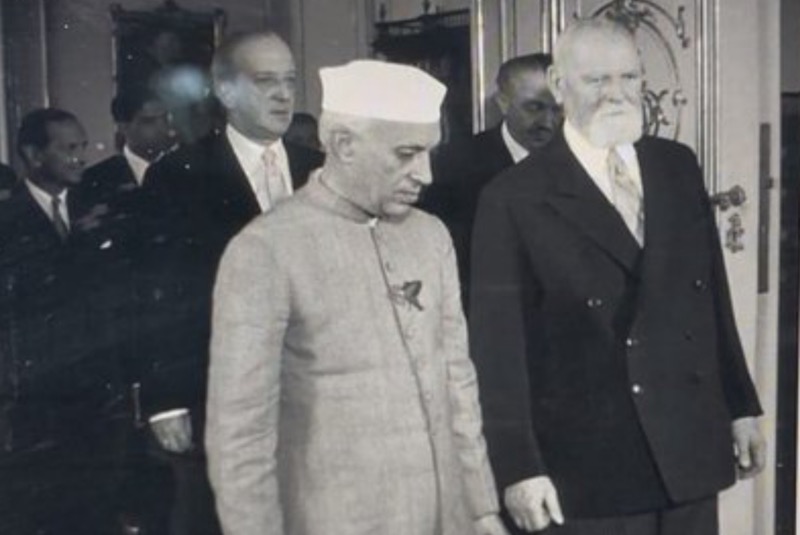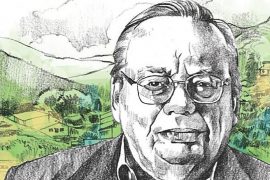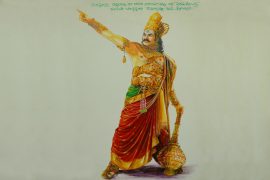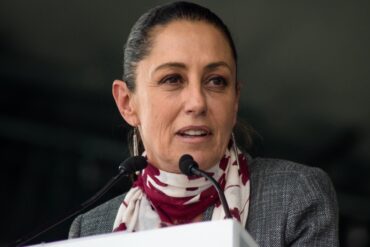During Prime Minister Modi’s recent official visit to Austria, his host, Chancellor Karl Nehammer, re-opened a few forgotten pages of history. He recalled Jawaharlal Nehru’s crucial contribution to Austria regaining its independence in post-World War II Europe, where the two superpowers, U.S. and U.S.S.R., played out the Cold War.
As I followed the coverage by the Indian media, I was compelled to think of the changes in diplomacy since my posting as First Secretary in Vienna from 1969 to 1971.
Before Modi’s visit, a prominent English national daily published a story that said Modi was visiting Austria 41 years after Indira Gandhi went there in 1983. It also said her visit was the first by an Indian Prime Minister to Austria.
I was shocked. Indira Gandhi had officially visited Austria in 1971 before the Bangladesh War broke out. She was on her way to Washington to meet President Nixon, who stood by the West-Pakistan military regime, led by General Yahya Khan, that was carrying out a genocide in East Pakistan. The main reason for Nixon’s policy of moral bankruptcy was that he was trying to go to China and meet Mao Zedong, and Islamabad was the intermediary. It was a cold-hearted ‘realpolitik’ of the worst variety.
Chancellor Nehammer, at a joint press conference, said, “There was a standstill in 1953, the situation was difficult. It was difficult to make progress with the Soviet Union, and it was Foreign Minister Gruber who contacted Prime Minister Nehru, asking for support in the negotiations to bring them to a positive conclusion…This is what happened. India helped Austria, and in 1955, the negotiations came to a positive conclusion with the Austrian State Treaty.”
To recall the historical context, Austria was occupied by the U.S., U.S.S.R., France, and the U.K. after Nazi Germany surrendered in May 1945. Stalin had withdrawn troops from Finland following the 1948 treaty between the two countries. Finland undertook to resist any attack by Germany or its allies — a reference to the U.S. — on the Soviet Union through Finnish territory. In effect, Finland regained independence by pledging permanent neutrality. Austria wanted a similar, not identical, treaty to get rid of Soviet occupation as the three Western powers were keen to help Austria regain independence.
Nehru chaired a meeting of Indian Ambassadors in Europe at Birkenstock in Switzerland in 1953, where the final decision was taken for Indian Ambassador K.P.S. Menon to present the proposal to Soviet Foreign Minister Molotov. Fortunately, they accepted it, paving the way for the 1955 treaty. The four powers signed a treaty to withdraw their forces from Austria, which joined the U.N. the same year. Nehru was the first foreign leader to visit Austria in 1955.
The website of the Indian Embassy in Vienna has no reference to India’s role in the 1955 state treaty. The list of high-level visits starts with “The Prime Minister’s” meeting with Chancellor Schallenberg on the sidelines of COP-26 in Glasgow. The reader might wonder why the Indian Prime Minister’s name is not mentioned. There is no reference at all to the 1955 treaty.
When I was in Vienna, the Embassy had a note meant for the public where the story of the 1955 treaty story was given briefly. Some years ago, my attention was drawn to a note verbale put out by the Embassy in Vienna seeking support for an Indian candidate for the post of Deputy Director General at the International Atomic Energy Agency, saying that an Indian had never held that post. During my time, an I.C.S. officer, Goswami, held that post. Such ignorance and neglect of history is unacceptable.
The 1955 State Treaty reminds me that India, under Nehru, was active in conflict resolution—be it the 1955 Suez Canal crisis, the Korean War Ceasefire and the Repatriation of P.O.W.s in 1953. India’s then Prime Minister quietly mediated and negotiated peace settlements without claiming to be a ‘Vishwa Guru.’
It is generally taken as axiomatic that a country’s diplomatic clout is a function of its military might and the size of its economy. India is already the fifth-largest economy and will soon become the fourth-largest. As one of the largest importers of weapons, it has a sizable military and is a nuclear power. Ergo, India should be able to exert its influence and emerge as a major mediator. But why is that not happening?
The short answer is in two parts. In the Cold War context, there was scope for India to act as a mediator. That scope is less now because the belligerents have the means to talk to each other. Yet, there is still scope.
Here comes the second part. During the Cold War, India had an active foreign policy, and equally, in V K Krishna Menon, there was an exceptionally able mediator. Menon is generally considered and dismissed as a stormy petrel. That is partly because of his personality. He had not cultivated the art of suffering fools gladly. More importantly, for the C.I.A. and the MI6, he was a bete noire, and they succeeded in projecting him as a stormy petrel. Many in India were eager to follow the lead from the West.
To conclude, the idea that pre-2014 Indian history can be dismissed is pathetic. A nation’s history is a continuum, a legacy that should not be chucked in the bin for political optics. Partisan historiography is perilous as those who do not want to take the trouble to understand the past cannot figure out the present.
-30-
Copyright©Madras Courier, All Rights Reserved. You may share using our article tools. Please don't cut articles from madrascourier.com and redistribute by email, post to the web, mobile phone or social media.Please send in your feed back and comments to [email protected]











